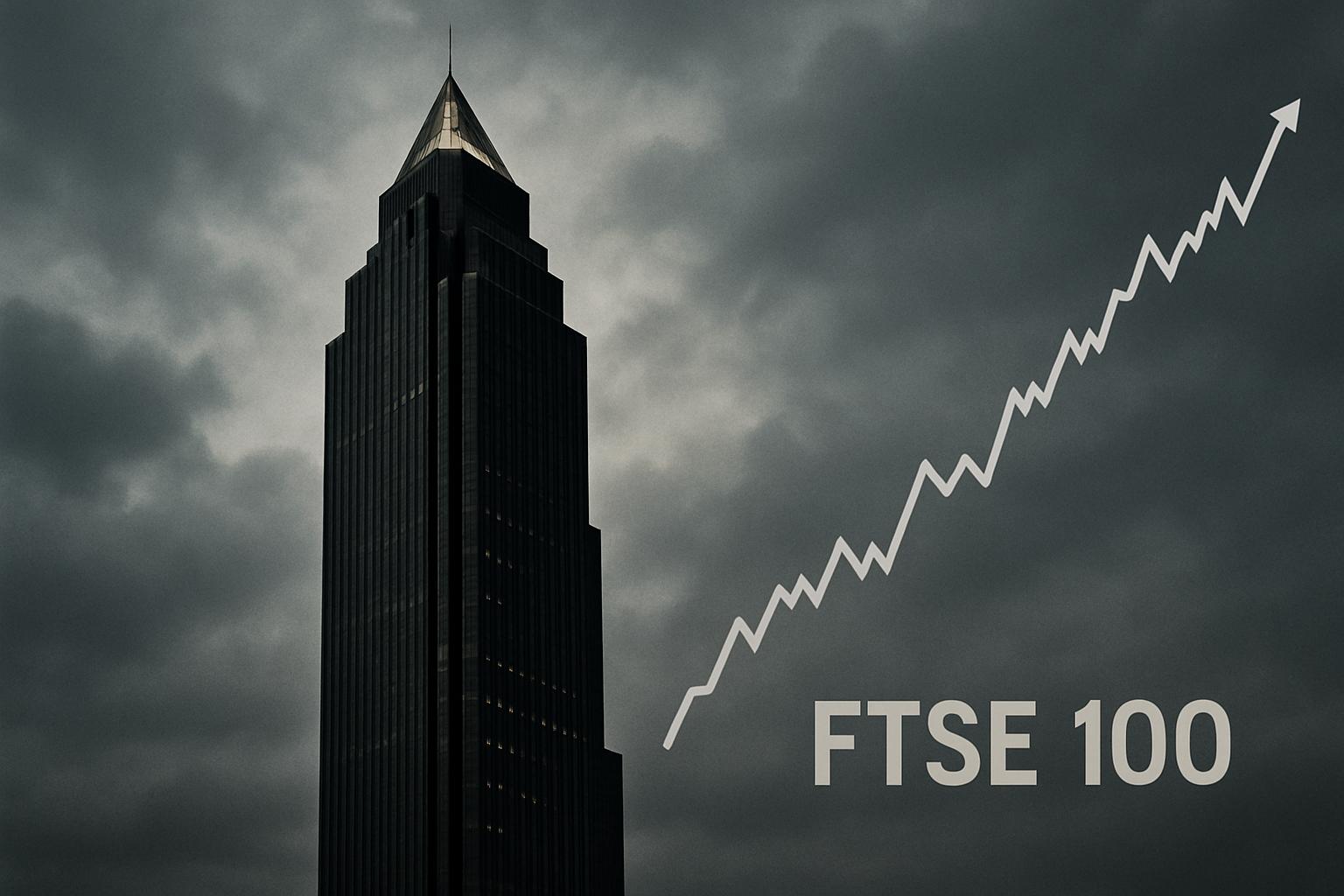The FTSE 100 opened on a firmer footing this week, exhibiting stability amid emerging discussions surrounding the potential introduction of a UK mansion tax in the forthcoming Budget. This latest fiscal speculation did not disrupt the market’s composure, as the index demonstrated steady momentum, largely underpinned by key players within the Energy, Financial, and Metals & Mining sectors.
At the forefront of this early trading stability were heavyweight energy companies BP and Shell, whose shares remained relatively steady despite ongoing global fluctuations in crude oil benchmarks. Investors appeared to anchor confidence in these oil and gas giants, closely monitoring their responses to a soft yet balanced global demand environment and ongoing supply adjustments. These developments in the energy market served as a crucial stabilising factor for the broader FTSE 100. The resilience of BP and Shell’s share performance echoed their significant standing within the UK’s energy segment and their ability to navigate macroeconomic uncertainties, including potential domestic fiscal changes such as the mansion tax. Although the tax targets high-value residential properties and is not directed at energy firms, market participants noted the indirect influence such fiscal policies could exert on the broader investment landscape.
Parallel to the energy sector's endurance, the financial stocks within the FTSE 100, including Prudential and Standard Chartered, also demonstrated cautious optimism. These institutions, with established presences in pan-Asian and emerging markets respectively, supported market calm despite analytical caution around the mansion tax’s implications for lending and property-linked financing. Financial sector equities showed a measured reaction rather than abrupt volatility, helped by consistent liquidity conditions in interbank markets and relatively stable foreign-exchange environments. This helped London’s banking and insurance domains maintain an equanimous performance, reflecting a broader trend of investor steadiness amid fiscal policy deliberations.
In the Metals and Mining sector, Fresnillo played a pivotal role in preserving market balance, buoyed by steady precious metals valuations in response to moderate global currency movements and hedging strategies. The mining segment's subdued activity coincided with stable industrial forecasts worldwide and limited commodity price fluctuations, which collectively tempered any immediate fiscal policy impacts on operational dynamics or project financing. Fresnillo’s disciplined cost management further reinforced investor confidence in this segment, contributing to the FTSE 100’s overall firmness.
Central to the market’s underlying tone was the unfolding dialogue on the mansion tax, a proposal gaining traction within government circles as part of broader efforts to rebalance public finances following sustained expenditure. While the tax directly targets the top tier of residential property assets, its reverberations extended into investor sentiment regarding the domestic housing market and ancillary service sectors. Yet, despite this prominent policy narrative, the wider FTSE All Share index remained resilient, suggesting that major listed firms absorbed the potential fiscal shifts with measured equanimity. Market observers noted that corporate earnings and operational data from leading UK companies continued to reflect strength, helping to counterbalance policy-related uncertainties and maintain a cautiously optimistic outlook.
This phase of market steadiness also coincided with positive international sentiment. Asian markets signalled modest gains, and European bourses mirrored this trend, reflecting a synchronised calmness across global markets. The alignment of sectoral strengths in energy, financial services, and mining underscored the FTSE 100’s diversification advantage, cushioning the index against sector-specific shocks and reinforcing market resilience.
While the energy and financial sectors contributed stability, it is noteworthy that some FTSE 100 companies maintain relatively low effective corporate tax rates. Analysis indicates that 42 firms paid under 20% tax in their last financial year, with 11 paying below 10%, largely due to their international operations and utilisation of legitimate tax breaks rather than avoidance. Companies such as BP, Shell, and Prudential, which featured prominently in this week’s market performance, are among those with adjusted tax rates below the UK corporate tax threshold. This international diversification not only influences their tax obligations but also supports their operational resilience amid domestic fiscal uncertainties.
However, the financial sector is not without vulnerabilities. Recent market episodes have demonstrated sensitivity to potential windfall taxes targeting banks, causing periodic selloffs in banking stocks such as Barclays, Standard Chartered, NatWest, HSBC, and Lloyds. Prudential has also faced declines linked to broader financial market concerns. These fluctuations underscore the financial sector’s delicate position amid evolving fiscal and regulatory landscapes.
Overall, the trading session highlighted a London market characterised by cautious yet consistent confidence. The combined strength of energy companies balancing global crude dynamics, financial entities maintaining liquidity and global diversification, and stable mining operations helped sustain modest gains within the FTSE 100. This resilience persisted despite fiscal debates, reflecting the UK market’s underlying robustness and the capacity of its largest companies to navigate an increasingly complex macroeconomic environment with measured stability.
📌 Reference Map:
- [1] (Kalkine Media) - Paragraphs 1, 2, 3, 4, 5, 6, 7, 8, 9
- [2] (AJ Bell) - Paragraph 7
- [3] (Sharecast) - Paragraph 8
- [5] (Evening Standard) - Paragraph 1, 9
- [6] (Trading Economics) - Paragraph 8
Source: Noah Wire Services
